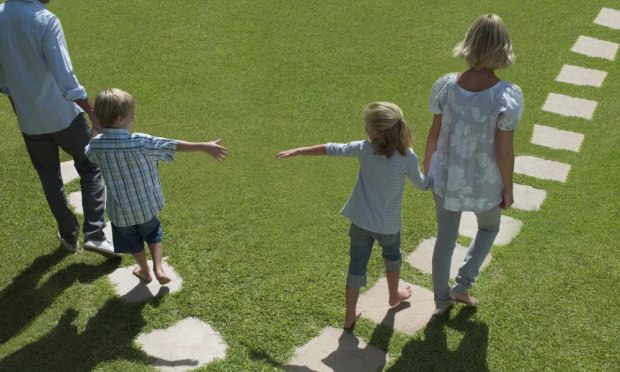
The Divorce/Separation Path
By Rosalind Sedacca, CDC
Divorce is rarely an outcome married couples expect or anticipate. But marital strife can take its toll. For many, divorce is the chosen path for coping with relationship challenges. This makes divorce a rather controversial topic.
Google the subject and you’ll find conflicting perspectives on every facet of divorce, especially when it comes to parenting issues. Of course that comes as no surprise to every mother and father who battled with the guilt, anxiety, fears and insecurities that rear up when contemplating divorce and its aftermath.
As you know, the Child-Centered Divorce Network welcomes this kind of dialogue. I participate in many Summits and discussion groups. I comment on many blogs and write columns for several divorce and relationship websites. I offer my own advice and opinions on topics related to divorce and its effect on children.
SHOULD WE DEMONIZE DIVORCE?
A reader’s comment is a good place to start this discussion …
Below is a comment from a reader in one of these discussions. Following that is my own response. This is a good jumping off place for your own commentary. You can add your viewpoint to my blog at www.childcentereddivorce.com – or send me an email at [email protected].
It’s always helpful to vent your feelings and frustrations in a community that understands what you’re going through. We may have some sound advice for you, as well. I welcome your feedback!
I agree that children should not be made to feel that they can save their parent’s marriage or that there’s a possibility their parents will get back together. But to say that divorce is not bad for children is reading too much into the existing evidence.
Research looks bleak …
The most recent research indicates that even children who did not exhibit obvious adjustment problems as youngsters suffer from feelings of loss and helplessness as adults. Rates of depression, anxiety and self-esteem disorders among the adult children of divorced parents are markedly higher than their intact family counterparts. Even the study you cite says that 25% of children suffer long term damage from a parent’s divorce. That’s high enough to give any person considering divorce pause.
And while there’s no doubt that parents behaving badly only makes things worse, to say that an amicable divorce makes everything okay is also going a step too far. No matter how friendly the parents are, children of divorce have to ping pong between two houses. Two families are torn during the holidays, and lack the most basic model for a loving, constructive, sustainable adult relationship. They learn that commitment means nothing and that problems should be solved by walking away.
Regardless of the circumstances, divorce sucks for everyone involved.
Is this worse than staying in a marriage that makes the parents miserable? Honestly I don’t know. But to say that you can divorce without it having an impact on children smacks of rationalization.
Rosalind Sedacca responds …
Your points are well-taken and should be very seriously considered before parents move ahead into divorce. No one advocates divorce as good for any family. However, when the home-life is toxic for the children, staying together can be just as harmful. Often it’s even more harmful than divorcing and creating a more peaceful outcome.
I am a product of parents who stayed together for the sake of the kids. I suffered all the negative psychological outcomes that children of divorce experience. That’s because my parents made every mistake we now warn against.
The reality is that parents need to be extremely diligent about the emotional environment in which they raise their kids. If there’s strong parental discord, and divorce becomes a reality, protect your children in every possible way. Take steps to keep them from feeling the impact. Help them avoid blaming themselves and trying to put your marriage back together. (They can’t do it, despite what movies often portray!)
There is no “best” answer to a toxic marriage unless the parents take responsibility for healing the pain and resolving the issues. Seek professional help — and keep your kids out of the middle! If you do end up divorced, make it “child-centered.” That means neither parent overlooks their responsibility to safeguard their children’s emotional and psychological needs. This is especially important for parents to remember when they’re getting lost in their personal drama. And when they’re preoccupied with their own rage, despair and resentments.
Role models are crucial …
Children raised in a toxic home have no role models for successful, respectful relationships. When parental conflict is the norm, or parents live as roommates in a home devoid of emotional connection, children pay the price. A divorce can create the opportunity for exposure to healthier relationships ahead. To happier times alone with both parents. To a less toxic childhood.
However, if post-divorce parenting is handled poorly, the children continue to lose. Reach out for professional advice, success strategies and tips. This gives your kids the outcomes they deserve, regardless of your ultimate decision.
*** *** ***
Rosalind Sedacca, CDC is the founder of the Child-Centered Divorce Network, a Divorce & Co-Parenting Coach and author of numerous books, e-courses and programs on divorcing with children and co-parenting successfully. For instant download of her FREE EBOOK on Doing Co-Parenting Right: Success Strategies For Avoiding Painful Mistakes! go to: childcentereddivorce.com/book
Please share this article on social media!
(c) Rosalind Sedacca All rights reserved




